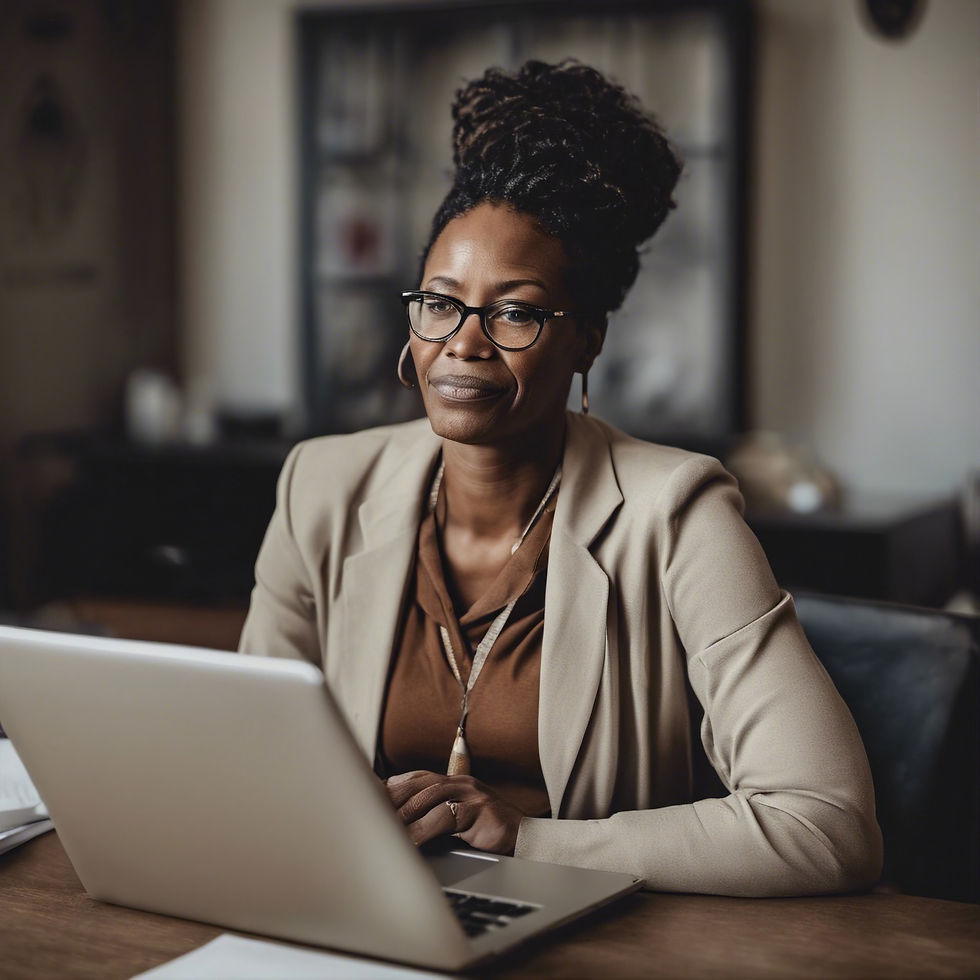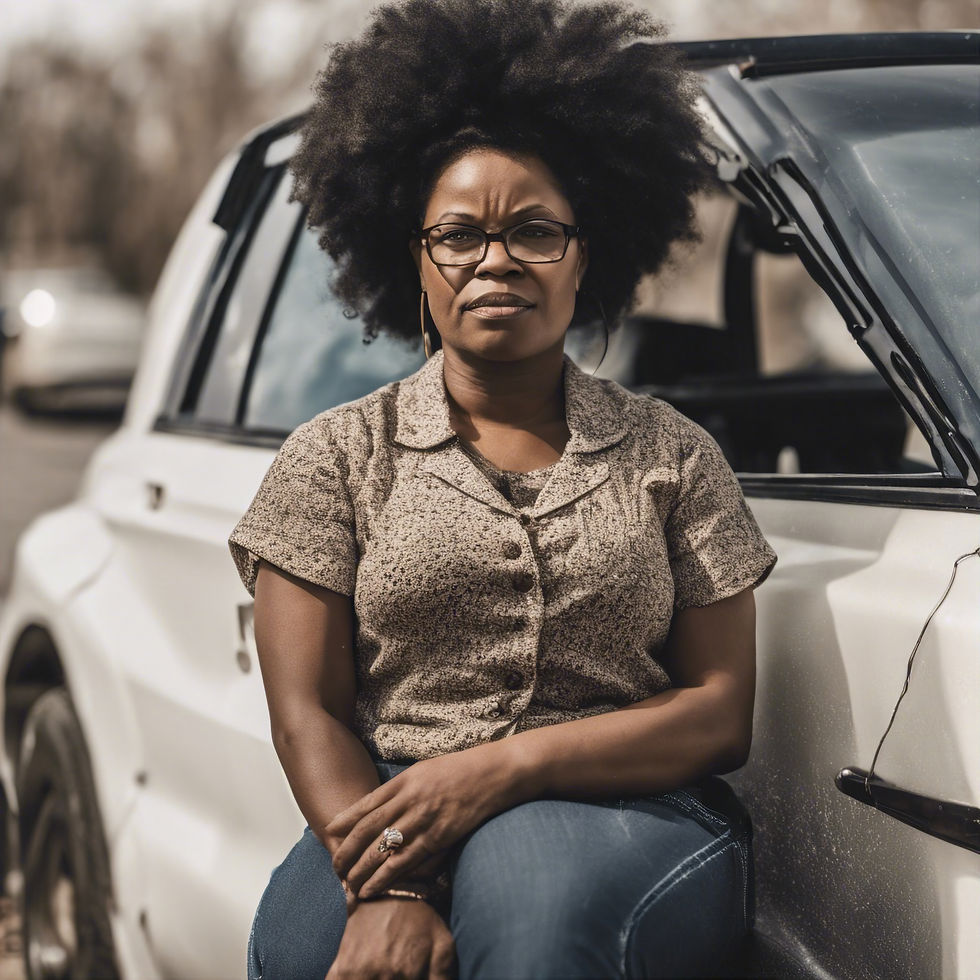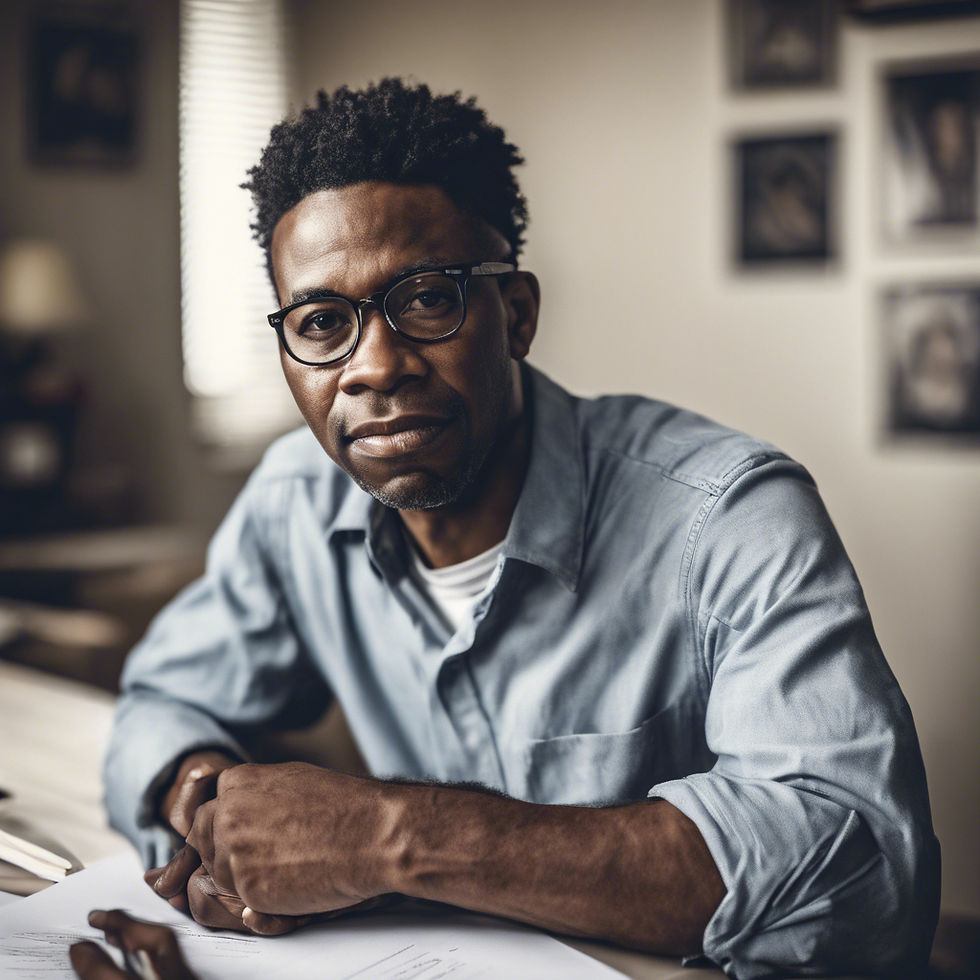Sample MSW Personal Purpose Statement African American
- StatementWriter
- Aug 8, 2024
- 9 min read
Updated: Mar 21, 2025
I will finish my Social Work undergraduate studies this coming May. I have my heart set on pursuing the MSW Degree at XXXX University because Providence is my home and the most convenient location for me to continue my studies at the graduate level. Here, I have the full support of my family, mentors, and many social connections, including many friends who are also social work professionals.

I could not feel more confident choosing Social Work as my career choice because of the profound joy I find in helping others. My volunteer work as an intern at XXXX Rhode Island, doing intakes and helping to provide a wide variety of services to our clients—including connecting them with the most vital resources of all, housing and employment—has enabled me to find a sense of fulfillment and joy in my profession that I could not have imagined only a few years ago.
As an African American woman, I am particularly interested in addressing the many complex issues resulting in African Americans being overly represented among those most needing social support from the community. I am also interested in the fact that African Americans are very much overrepresented in the US military and the unique challenges that they face as veterans, all too many of them suffering from mental health issues and many homeless. At XXXX Rhode Island, I conduct individual intakes, meet with clients for follow-up appointments and help clients to fill out housing and employment applications. I have come to appreciate the importance of meeting clients where they are, taking the time to listen to them and find out what resources they have, and then taking advantage of them to help them meet their challenges. I feel very strongly that the only obstacle that cannot be overcome is death and that it is never too late to improve one’s life.

My life experiences are the primary inspiration for my choice of social work as a career. My whole life, I grew up putting everyone before myself. My mother was frequently absent from an incredibly early age because of her drug addiction. It didn’t take long for my grandmother to realize that she needed to become our legal guardian. I remember questioning myself, wondering if my grandmother was preventing me from having a relationship with my mother. I began to express feelings of rage towards my grandmother, not realizing that she was protecting me from even more significant harm and injury. I was far too young to understand why I could not live with my mom, which generated the negative consequence that I had a greater love for my mother than I did for myself. As I matured, I slowly realized what it meant to have a drug problem, as my mother does. My mother struggled valiantly to stay clean, sober, and work to preserve her health. She tells me that I am her biggest cheerleader.
Every fiber of my being is engaged with the issues surrounding the bleak reality of mothers and addiction, and I am exceptionally knowledgeable in this regard concerning the African American community in Providence. I am an excellent candidate, for example, to help a mother who has lost custody of her children. I tell them straight up about my mother, and they get all excited because they realize immediately that I am someone who can understand what has happened to them and what they need to do to address the issues. Along with helping veterans, this is the principal area where I hope to specialize in my practice and engage in a lifetime of research and publication in this area. One day a woman’s boyfriend who is under surveillance can put one thousand dollars' worth of illegal drugs in her purse for safekeeping; the next thing she knows, she is off to jail for 20 years and has lost her children to the system.

This has happened to way too many African American women, in particular, who have suffered in a discriminatory fashion from laws that made penalties for crack cocaine many times higher than powdered cocaine, preferred by white people. This is a situation of egregious racial injustice and violence targeted against women of color that have only begun to be corrected in the second term of America’s first Black president. I’m dedicated to using my practice to help mothers that have lost custody of their children to work towards the process of being awarded reunification. No woman wakes up and thinks about harming their children. Mothers who have had their children taken away deserve an opportunity to prove themselves and that they can again be excellent mothers to their children.
My intense passion for family dynamics led me to work at a child recreation center, promoting a positive environment for many at-risk children. I spent one year at XXXX Boys & Girls Clubs, working with diverse groups of children aged 5 to 12. Many if not most of these children were from single-parent families, placed in foster care, or cared for by a non-parent guardian who was a family member. One could see this in how they acted out, seeking attention from adult figures. Those children with two parents at home acted out much less because they were not so starved for attention.
When I began working with these children, I wanted to perform tasks and play games that were relatable, familiar, interactive, fun, enjoyable, and free-spirited: board games, card games, mathematical games, and memory activities. I did read and coloring activities, oversaw and participated in sports, helped children with their homework, and supervised and played with them in the playground. Seating children for dinner and monitoring behavior during meals, I greeted parents and managing children in the locker room and pool area. As much as possible, I worked in groups with co-workers when engaged in group activities. I gave my all and learned much about educational learning strategies and therapeutic activities for neglected and at-risk children. I also learned a lot about safety, teamwork, and the appreciation of diversity.
I became painfully aware of my issues as soon as I went to school, Veazie Street Elementary School; I remember being pulled out of my 1st-grade class and being told that I was switching classrooms, that I was being placed in “special education.” When I walked into my new classroom with a much smaller class, I began to believe, to internalize a sense of myself as slow at best and stupid at worst due to my learning disability. I struggled throughout my youth with issues of self-confidence and self-motivation, and it took me an exceptionally long time to learn to love myself unconditionally, despite my learning disability. Timid and quiet, I suppressed my internal feelings and accepted my inferiority.
The teachers that worked with me were my support system, along with the support provided by my family. The teachers helped me gain confidence by developing new skills, learning to enjoy reading and solving math problems, and practicing spelling and writing. The collaboration between the teachers and my grandmother gave me a sense of support and love that helped me embrace life little by little. However, it was not until my final year of high school that I was allowed to attend ‘normal’ classes with no supervision or special assistance. I finally felt like my learning disability no longer defined me. I also came to believe in high school that I could achieve and help others overcome the difficulties associated with a traumatic childhood.
Thus, I want to dedicate my life to helping children with special needs face unique challenges. I know what it feels like to be an outcast by people, the sense of loneliness and unworthiness. I realized that I wasn’t able to see myself as worthy until I was encouraged by my teachers and grandmother to embrace and overcome the challenges that were preventing me from believing in my worth, from proving to others that I was able to learn as well as anyone else.
I see the existence of so many at-risk children, disproportionately children of color, as the result of historical injustice. The other social justice area in which I am profoundly engaged is with our veterans, especially homeless veterans. I feel strongly that our homeless veterans should be given all of the help that they need to live life with dignity, beginning with a roof over their heads, dignified private space in which to heal and dwell, and a living wage doing the kind of work that they enjoy and are capable of doing. I combine my passion for children with a deep concern for the broad range of social justice issues surrounding our veterans.
Veterans of all races are underserved, mainly because they fought or at least trained to fight for our country. Increasingly, I have seen my study of children with special needs on the one hand and veterans’ issues on the other as related. I find refreshment by switching back and forth from one subject to another in my mind while noting meaningful, crucial connections. Many veterans, for example, chose to become soldiers in the first place due to dysfunction at home and childhood trauma—it is also a way to avoid the criminal justice system for many. The military is an escape from often complex circumstances and a lack of direction. Unfortunately, for many, the military experience compounds trauma rooted in childhood, resulting in onion skin layers of PTSD.
As a graduate student in your program, I look forward to becoming an advocate for better mental health services for veterans. My passion for working with oppressed communities was very much aroused as an undergraduate student in one of my social work courses focused on poverty. This class gave me much-needed insight into the barriers that oppressed people face and the significant impact that these barriers have on their lives. For my class project, I focused on the south side of Providence; this community has a great deal of oppression. The central focus of my project was the substantial number of people sleeping (“living”) in the graveyard, couches placed on sidewalks, bus stops, and people trying to rest and pass their time in front of local convenience stores and fast-food restaurants. I searched for answers to help me better understand why so many people were sleeping on the streets. The price tag on even the most modest places to live and sleep was beyond their means, especially since most of the homeless people I studied were ill.
The lower sector of south Providence consists of abandoned houses, poor landscaping, and overgrown grass, for rent signs visible everywhere, alongside for sale signs, with only a few signs of development. The upper sector of south Providence fares better, with some subsidized housing even being renovated with vibrant paint colors; one sees roof repairs, new stairs, and decks installed. However, the southernmost sector of Providence is in deep decay with an enormous homeless population. It is to that location that I seek to turn my attention as an MSW Professional. Amos House feeds and does what it can to help hundreds of people at the epicenter of our homelessness crisis in south Providence. I look forward to developing a lasting bond with this noble institution.
My greatest weakness is that I must be careful with my emotions as a social worker. I often struggle to stop thinking about my clients in my free time, to escape, relax, and refresh. But as I mature as a social worker, I also progress concerning this most difficult of challenges.
I see myself as an exceptional candidate for acceptance into the MSW program at Rhode Island University for many reasons, not the least of which is my expertise in South Providence. Most of all, I take pride in my critical thinking skills in developing survival strategies for those who face some of the most desperate life circumstances. I have extensive experience in assessment, and I am skilled at inspiring, empowering, and validating the feelings of my clients.
A fervent believer in the importance of self-criticism and evaluation, I judge myself harshly, always, so that I see constant progress in my ways of thinking and behaving. I am knowledgeable about debates and issues surrounding how to best implement the imperatives of social justice, humanitarian service, the dignity and worth of the person, cultural competence, and social diversity, etc., the values that reflect my profession.
I meet the academic requirements for performance at a graduate level since my undergraduate GPA is over 3.0, currently 3.47. I’m a very hard-working student, which is why I survived some rigorous courses with excellence, including several challenging courses dealing with research and policy. The complex academic challenges that I have faced so far have inspired me to dedicate increasing attention to developing my writing skills alongside my thinking skills.
I thank you for considering my application to realize my entire dream, to become the finest social worker that I can become.
Sample MSW Personal Purpose Statement African American






Your statement has a powerful emotional core and a clear professional identity, and that combination is one of its greatest strengths. What stands out immediately is the depth of lived experience you bring to the field of social work—experience that isn’t simply adjacent to the profession but fundamentally intertwined with its purpose. You’re not positioning yourself as someone who discovered social work in a classroom; you’re someone who has lived its realities, its injustices, and its transformative potential from childhood onward. That authenticity gives your narrative a credibility and moral weight that many applicants simply cannot match.
Another compelling aspect is the way you connect your personal history to your professional goals without slipping into self‑pity or sensationalism. You describe…